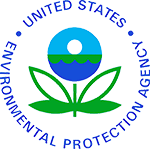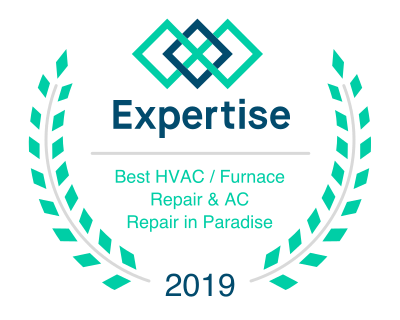You spend the majority of your time in your home – your personal space. That means most of the air you breathe throughout the day is filled with potential allergens, pollutants, odors, and even gases like pet dander present in the atmosphere inside your house. Therefore, you want the air you inhale to be clean, packed with plenty of health-boosting content and free from any impurities such as pollen or VOCs (Volatile Organic Compounds), for you and your family’s health. Of course, striking the right balance can be difficult, especially with children, adults and pets contributing differing amounts of particles into the air. However, keeping in mind the directive from experts in health and cleanliness, the task can be accomplished. It is a matter that calls for a person’s undivided attention, but the effort is worthwhile for obtaining a healthier environment! Here are 11 tips for better indoor air quality.
1. Bring in Fresh Air
Pure, outdoor air is the optimal source of oxygen to breathe. If you live in an area that isn’t overly polluted, the air outside is probably better quality than the air in your house. In sourcing outdoor air, you should open the windows and allow fresh air to enter your home, effectively helping to sweep away pollutants and odors. You may even choose to sleep with the windows open on cool nights. Think of the outdoor air as a source that displaces indoor pollutants. In order to stay comfortable in your house and keep bugs out, install secure screens on all of your windows. You should also avoid running your HVAC unit when the windows are open as it may draw in outdoor pollutants from external sources.
2. Maintain Proper Humidity
When it comes to maintaining your health and improving your indoor environment, humidity plays a crucial role. Humidity is the amount of moisture in the air. Keeping a balanced humidity in mind, we need some moisture in the air, but not too much. Too much moisture can lead to the growth of molds that paint a negative picture of your health. Breathing in mold can be dangerous for you and your family. Generally speaking, you want to keep humidity levels between 30%-50%. To accomplish this, you can purchase a machine that works as both a humidifier and a dehumidifier. You simply turn the machine on and watch with delight as it collects and regulates moisture. Don’t forget to empty out any water that the machine collects. Some HVAC systems even include this beneficial feature.
3. Clean Your Clothes and Sheets
Many people leave laundry, a common collector of dander, pollutants, and allergens, for far too long. It’s not only unsightly, but it’s also gathering all sorts of airborne irritants and releasing them into your space. You should wash your laundry as often as possible. You should also keep other linens, such as sheets and blankets, clean. It might take a little more effort to stay on top of everything, but you’ll notice a difference in the air when you breathe. Try to keep dirty laundry in one closed-off location, away from you and your family.
4. Buy Plants
Plants emit clean air and are a natural way to combat pollutants. They live off of harmful carbon dioxide that might be in the air, acting as a healthy source of air purification. Most of us picked up this knowledge in science class. However, most of us didn’t know that we could use this information to help us improve the air quality in our homes when we got older. Visit your local hardware store or nursery to find pleasant plants. Strategically place the plants in different areas throughout your house. In return, they will help to put clean air into your home while reducing pollutants and odors. Plants not only make your residence smell better but add a calming beauty to your space.
5. Clean the Floors
You’ll be amazed at how much dirt, pollen, and debris accumulates on your floor every day. We track in stuff on our shoes and drop things. With time, this builds up and the particles are then mixed into the air you and your family breathe. Therefore, regularly vacuuming and mopping are not just simple home upkeep, but health measures as well. Look for vacuum cleaners that have a HEPA filtration feature; as experts suggest, these filters are the most efficient at sucking up the unwelcome guests from your carpets. Not only will your home look better, but you’ll breathe air of a higher standard.
6. Use Natural Cleaning Products
It’s not ideal to breathe in the chemicals most cleaning products, including some paints, use. These chemicals, often VOCs (Volatile Organic Compounds), get into your space when we use them, though. Look for cleaning products made from natural ingredients, and even safer painting sources, instead of harmful chemicals. This will help to lessen your exposure to unnecessary pollutants and allergens, contributing to a healthier in-home environment. Household items like furniture can sometimes aggravate symptoms of allergies and other health conditions due to the accumulation of pet dander, dust mites, and other particles. They might be a little bit more expensive than other options, but opting for low-chemical or organic pieces is worth it not to have proper care, instead of having to choke on chemicals. In fact, you can even create your own cleaning products right in your kitchen with items you might have around your house. Additionally, this can also help eliminate harmful pollutants like formaldehyde. Some people have discovered that certain houseplants have the ability to cleanse the air, ridding it of carbon monoxide and other air pollutants, making them a lovely and useful decorative piece in any room.
7. Improve Ventilation
Proper ventilation is an essential part of maintaining good air quality, especially when something happens to introduce smoke or mildew, chemicals, or other harmful substances into the air. One of the ways you can improve circulation in your house is by locating and repairing any obstructions. Windows, approved by the Environmental Protection Agency for good air exchange rates, can tackle the problem of indoor air pollution. Additionally, regularly cleaning the area by your HVAC unit featuring a filter, to make sure that it doesn’t get leaves caught in it is a good preventative measure against throat irritation and more serious health issues like cancer. It’s just like how you should try to keep your gutters clean at all times.
8. Clean the Filter in Your HVAC System
In the beating heart of your home’s ventilation – the HVAC system, there exists a crucial component known as a filter. A plant-derived filter works wonders in trapping harmful pollutants. There are two main types of filters: one filter you need to replace, while the other you just need to clean (similar to the lint trap in your dryer). This filter is responsible for picking up particles like dust and pet dander amongst others from the air. Yet, if you don’t clean the filter, you’ll be spreading these particles throughout your house whenever the HVAC system is blowing. Therefore, it’s of utmost importance to regularly clean this filter, especially if you’re using the system often.
9. Prohibit Smoking Inside
Smoking not only exhibits a problem for the smoker but for anyone in the vicinity, resulting in second-hand inhalation of the toxins found in cigarettes, including carbon monoxide. It’s like breathing the smoke in themselves. You’re hurting your lungs and your heart. You’re also damaging your teeth and your skin. Smoke smells bad, too. If you allow smoking in your house, it contributes to indoor air pollution and is a serious fire hazard. This is just one of the many reasons why you should not allow smoking in your home.
10. Buy an Air Purifier
Despite your best cleaning efforts, there’s still a good chance that there are materials in your air that you don’t want to breathe. A recognized solution to this issue is an air purifier. It will help to remove those unwanted toxins including formaldehyde and carbon monoxide in the air. You should place it where you sleep or where you spend the most time in your house. Some people have noted that organic honeysuckle candles work as a natural air purifier, too.
11. Call the Professionals
Turn to your local HVAC professionals to talk more about your air quality and what you can do to fix it. With the right tools and advice, you’ll be able to combat the problem and improve the air your children and others breathe. Don’t forget to ask about a radon test, too. Together, you’ll come up with a solution to keep the air quality in your home as good as possible.
Rely on the Pros
It is essential to keep the air in your home clean and safe for everyone to breathe. This will not only ensure everyone is breathing properly but can also help to protect them against certain airborne illnesses, including cancer. People who suffer from asthma or allergies are especially vulnerable to airborne particles including dust mites and pet dander among others.
If you’re concerned about the quality of the air in your home, call The Cooling Company today in Las Vegas. We specialize in solutions for such problems, offering services like indoor air quality and duct cleaning. We can also install new duct systems and HVAC systems if the old ones are contributing to the problems in the air. Our team offers comprehensive heating and cooling services to ensure the air you breathe at home is clean and safe.












